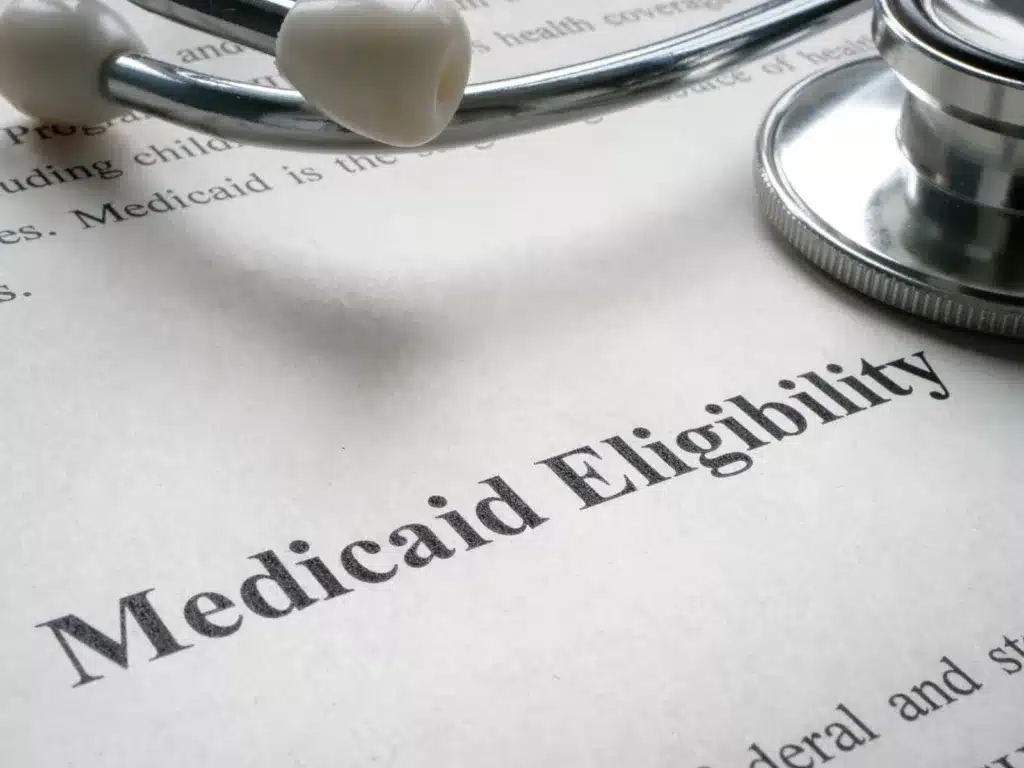Medicaid, a vital lifeline for millions of Floridians, offers a range of benefits, including long-term care services for the elderly, low-income individuals and people with disabilities. However, the application process for Medicaid can be complex and requires meticulous preparation. Understanding the documents you need for Medicaid eligibility is the first step toward securing financial assistance for long-term care in Florida.
Eligibility for Medicaid in Florida
Before diving into the required documents, it’s crucial to understand that Medicaid eligibility in Florida is based on various factors, including age, health status, financial resources, and income. Generally, Medicaid is designed for individuals with lower incomes and/or fewer assets who require a substantial level of care, typically provided in assisted living or nursing facilities or through in-home care services. Individuals who are “over assets” or “over income” may also be able to qualify for Medicaid provided they have taken the proper planning steps to meet the income and asset guidelines.
Gathering the Proper Documents Needed for Your Medicaid Enrollment Plan in Florida
Starting the Medicaid application process can feel overwhelming, but assembling the necessary documentation in advance can streamline the procedure and reduce stress. The state of Florida requires several key pieces of information to verify your eligibility for Medicaid:
Essential Personal Documents
Your identity, age, and residency are foundational in the Medicaid application process. As such, you will need the following documents:
- Proof of Identity and Age: A government-issued photo ID such as a driver’s license, state ID, or passport is needed. Birth certificates are also vital to confirm your age.
- Proof of Citizenship or Immigration Status: A U.S. passport, birth certificate, or other proof of citizenship is necessary. For non-citizens, immigration documents are required.
- Proof of Florida Residency: Utility bills, mortgage, lease agreement, or any official document showing your current address will help confirm you’re a Florida resident.
- Financial Documents: Bank statements and tax returns can help confirm your income and assets.
Medicaid is intended for individuals with limited income and assets. Therefore, you must provide comprehensive information about your financial situation, including:
- Income Verification: Pay stubs, employer letters, or benefit statements (Social Security, pensions, etc.) serve as evidence of income. Self-employed individuals need to provide recent tax returns.
- Asset Information: Bank statements, investment account summaries, and documentation of any real estate owned must be submitted. Also, information about vehicles, life insurance policies, and any burial trusts or pre-arranged funeral plans is required.
- Property Ownership: Deeds or tax assessments for any property you own are required as well.
Medical Documentation Needed
Since Medicaid is specifically for individuals who need medical care, providing proof of this necessity is fundamental. Documents from your healthcare providers detailing your health status, medical history, current treatments, and any diagnoses that necessitate long-term care are essential if you’re applying for Medicaid for long-term care. If you’re applying due to a disability, an official disability determination from a medical professional or relevant agency is required.
Additional Documents That May Be Needed
In some cases, you may need to provide:
- Medicare Information: If you’re enrolled in Medicare, you’ll need a copy of your Medicare card and any supplemental insurance plans.
- Veteran Benefits Information: If applicable, be sure to provide details of any veteran benefits received.
- Legal Documentation: If your spouse or adult child may be applying for Medicaid on your behalf, a durable power of attorney or guardianship papers may be required.
What If My Income or Asset Level Is Too High? Can I Still Qualify for Medicaid?
If your income and assets are over the limit to qualify for Medicaid, you still may be able to qualify with some advance planning. An elder law or estate planning attorney who specializes in Medicaid planning can assist you with planning and protecting your assets to enable you to qualify for this government assistance. For instance, you may be able to open an irrevocable trust, such as a Qualified Income Trust or a Miller Trust, if you are “over income.” In addition, you may need a personal service contract/agreement and a Medicaid Trust if you are “over assets” to be able to qualify for Medicaid. Keep in mind, in Florida, there is a five-year Medicaid look-back period that immediately precedes the application date at a nursing home or assisted living facility. During that period, Medicaid checks to ensure no assets were gifted or sold under fair market value. This includes assets transferred by one spouse to another or to one’s children. Even with the proper planning and trusts in place, it could take several years before you qualify for Medicaid.
Because of the complexities involved in Medicaid planning, it’s highly advisable to seek a qualified estate planning attorney, such as the experienced Medicaid planning attorneys at RTRLAW. If you or your loved ones need to qualify for Medicaid to pay for long-term care at an assisted living or nursing home facility or home care, contact RTRLAW today for assistance at 1-833-HIRE-RTR (1-833-447-3787).
Navigate the Application with Precision by Getting Legal Assistance from an RTRLAW Elder Law Attorney
Applying for Medicaid in Florida involves thorough preparation and an understanding of the necessary documentation. Since Medicaid eligibility extends beyond mere financial need, encompassing medical necessity and care requirements, ensuring your documents accurately reflect your situation is crucial.
Because the process can be complicated, consulting with an elder law attorney from RTRLAW can provide guidance in navigating the application process with confidence and ease. Remember, meticulous attention to detail can be the difference between securing the support you need and facing unnecessary delays or denials.
For more information or to schedule a free, no-obligation case review, contact RTRLAW today or call us toll free at 1-833-HIRE-RTR (1-833-447-3787).


 CALL US NOW
CALL US NOW TEXT US NOW
TEXT US NOW
























